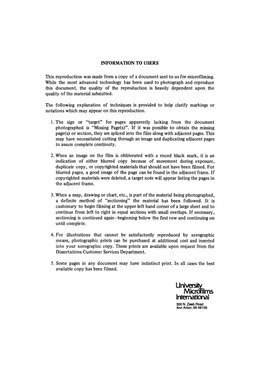| dc.contributor.author | Pourtaei, Ali, | en_US |
| dc.date.accessioned | 2013-08-16T12:28:45Z | |
| dc.date.available | 2013-08-16T12:28:45Z | |
| dc.date.issued | 1982 | en_US |
| dc.identifier.uri | https://hdl.handle.net/11244/5037 | |
| dc.description.abstract | It is concluded that both "social strain" and "resource mobilization" are of crucial significance in the genesis and the success of revolution and revolutionary take-over. In other words, a people's resource mobilization effort in relation with the intensity of strain inflicted upon them can produce different types of social action, including a revolutionary change. | en_US |
| dc.description.abstract | To overcome this problem, a four-stage strategy is adopted in this dissertation, which consists of both theory and empirical observation. Several theories of revolution are applied to the Revolution of Iran (1979) and are synthesized accordingly. This synthesis, as a comprehensive theory of revolution, is tested against another case of revolution, namely the Revolution of Egypt (1952), so that its validity is evaluated and determined. | en_US |
| dc.description.abstract | Certain social events take people by surprise and revolutions are among the most surprising social phenomena. Different theories of revolution have failed to provide an adequate explanation of this phenomenon. Thus, the factors that have caused previous revolutions have not been fully elaborated and, relatedly, the anticipation of the future revolutions has become a difficult task. | en_US |
| dc.format.extent | x, 396 leaves : | en_US |
| dc.subject | Sociology, Theory and Methods. | en_US |
| dc.title | Toward a synthesis of theories of revolution : | en_US |
| dc.type | Thesis | en_US |
| dc.thesis.degree | Ph.D. | en_US |
| dc.thesis.degreeDiscipline | Department of Sociology | en_US |
| dc.note | Source: Dissertation Abstracts International, Volume: 43-06, Section: A, page: 2129. | en_US |
| ou.identifier | (UMI)AAI8225514 | en_US |
| ou.group | College of Arts and Sciences::Department of Sociology | |
